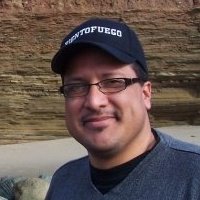Alumni Early Career Profiles - David Morales

| Name: | David Morales |
|---|---|
| Education: | B.S., Mathematics and Computer Science, The University of Arizona, 2001 |
| Position: | Graduate Student Interdisclinary Program in Applied Mathematics The University of Arizona |
| Sector: | Other science and technology |
Description
I have just completed my second year of study in the Program in Applied Mathematics at The University of Arizona (UA). After completing my undergraduate degree, I was employed as a Science Fellow at High Throughput Genomics in Tucson, AZ. My duties included the programming of the proprietary software and the implementation of statistical tools for the analysis of imaging data. After seeing the power of mathematics in industry, I returned to graduate school. My graduate research deals with genomics.
Coalescent theory, which is based on Markov processes from probability theory, is central to the study of genetic sequence variation that describes genealogy. The application of this mathematical model has led to a powerful perspective for conducting the analysis of sampled sequences of DNA more efficiently. Current projects involve the analysis of genetic data from around the globe to reconstruct the long-term history of our species.
In other words, you have human genetic data and you want to interpret it. How far back before two people have a common ancestor? What kind of history did our ancestors have? Was there population growth, constant size populations, mixing between populations, et cetera? Mathematics provides the glasses through which to view data. When viewed from a mathematical perspective, data can be turned into a description of things that our beyond our reach, such as the past. Many historical artifacts have been destroyed, books have been burned, oral traditions lost, cultures change, but we still have a link to our ancestors through our genes. The quantitative reasoning that mathematics provides allows us to be history detectives using present-day genetic data.
I received my bachelor's degrees in mathematics and computer science from the UA. I was involved in undergraduate research through the NASA Space Grant, Undergraduate Biology Research Program, and Minority Access to Research Careers. Being involved in biology and genomic research has taught me through experience that probability, statistics, and numerical analysis (along with all the mathematics that goes into their foundation) are necessary tools, along with the logical reasoning that is gained in any mathematics course.
Regardless of major, the knowledge gained by taking mathematics courses cannot be underestimated. A mathematician is known as one who can solve problems that range in origin. Abstraction, logical and quantitative reasoning gives the mathematics student an advantage, from the classroom to the filtering of fallacies that are abundant in today's society. Mathematics provides a strong foundation for life.